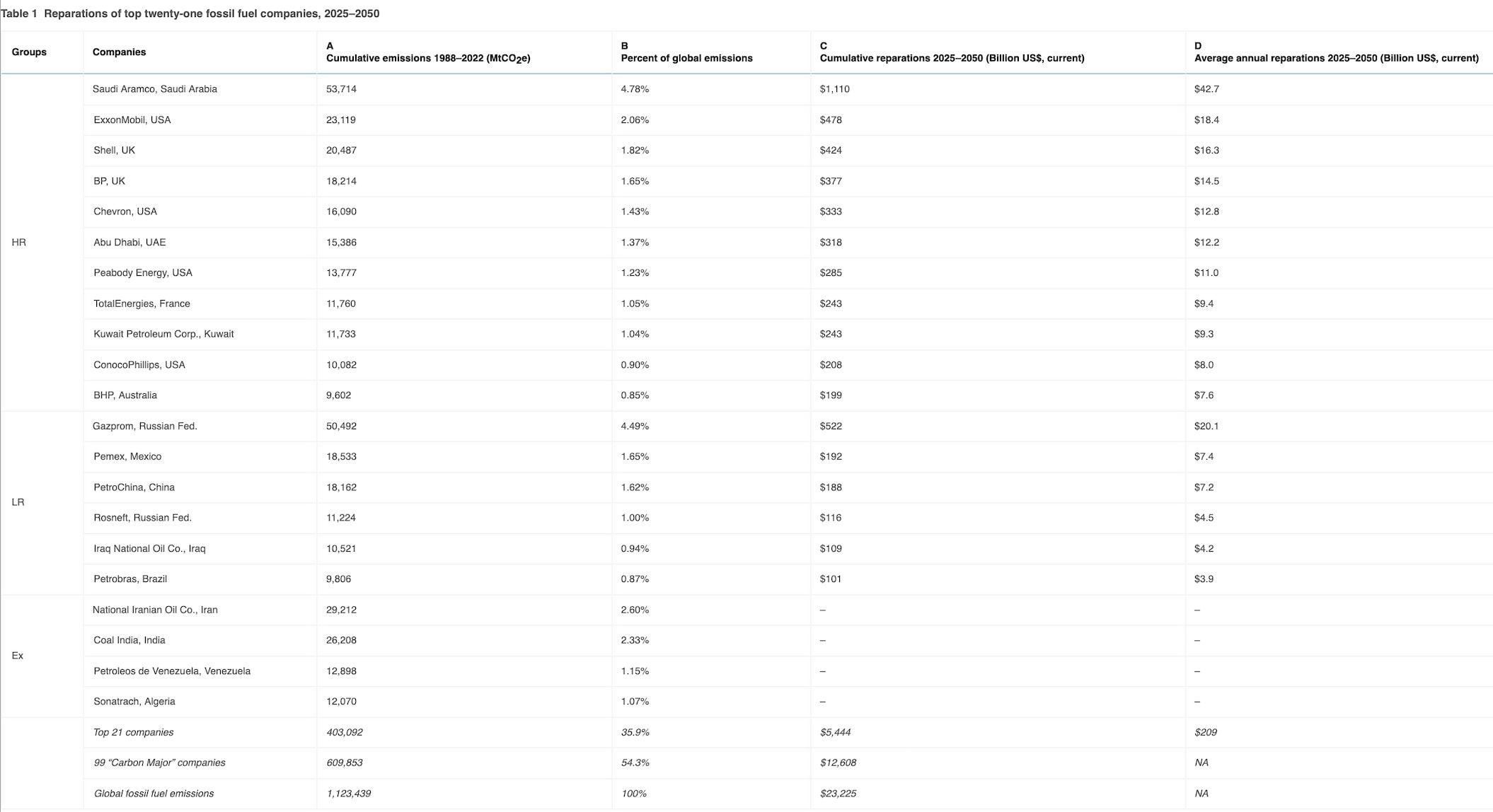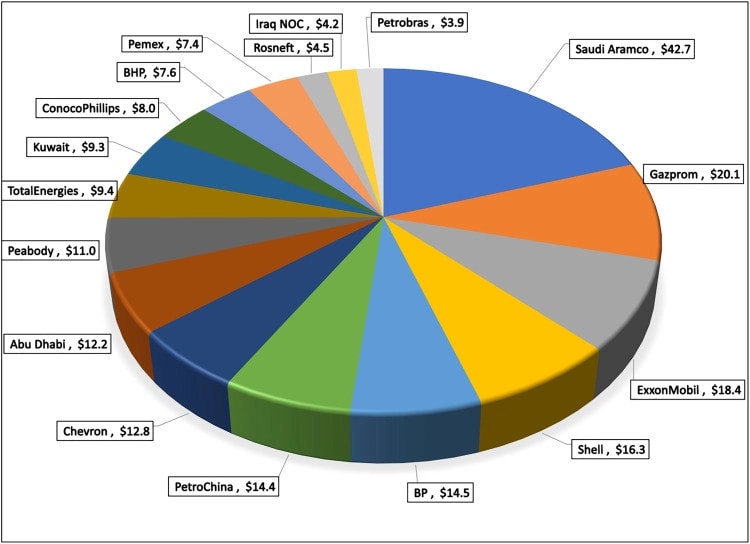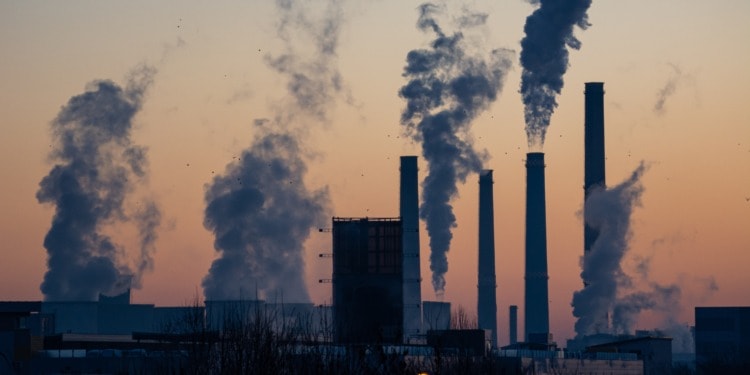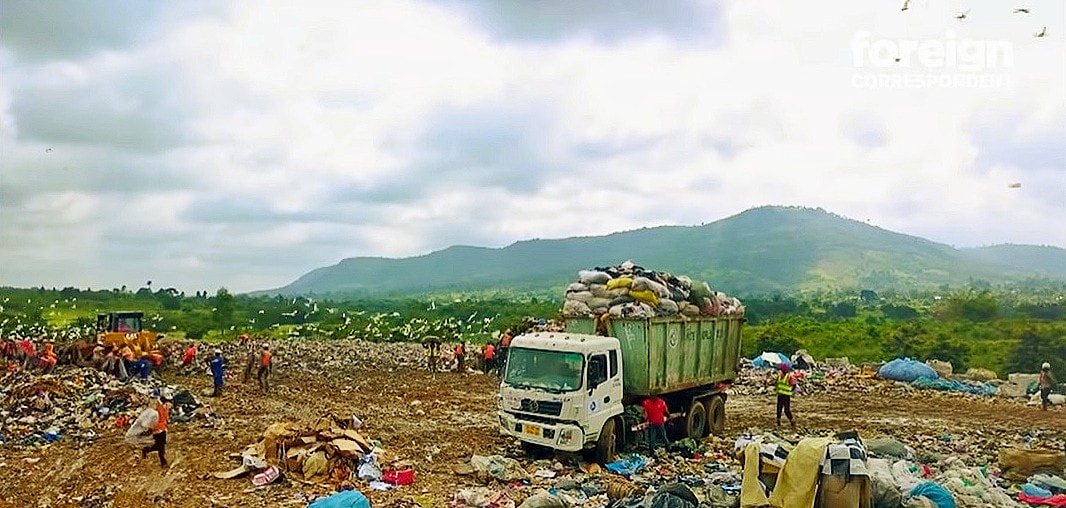On May 19, One Earth published a study titled “Time to Pay the Piper: Fossil fuel companies’ reparations for climate damages,” which demands that fossil fuel firms pay sufficient reparations for the damage they have caused. The authors behind the analysis state that: “Fossil fuel companies have a moral responsibility to affected parties for climate harm and have a duty to rectify such harm.”
The study drew attention to the fact that the countries that are suffering the greatest impacts of climate damage are the ones who have contributed the least to it. The impact of the degradation of the planet falls “disproportionally” on the Global South, as the authors behind the One Earth study emphasise, and these populations in Africa, Asia and Latin America contribute only 8% of excess emissions.
The authors of the study stress that those who have caused the greatest climate disruption are greatly profiting, whilst other countries are forced to suffer.
An article by the Guardian, commenting on this issue, touched on the example of the Caribbean. It explained that Jamaica has suffered spells of extreme heat and droughts that have lasted for months due to climate change, detrimentally impacting their water supply and their agricultural market. In addition, André Wright, the author of the article, spoke with the prime minister of Belize, Johnny Briceño, who said that major fossil fuel producers “have a moral and legal responsibility to the rest of countries suffering from climate change.”
These are the consequences of the actions of the richest fossil fuel companies. A 2020 study by OXFAM and Stockholm Environment Institute revealed that, between 1990 and 2015, the world’s richest 1% of the population was responsible for 15% of harmful emissions.
Related Articles: Cutting Emissions: Can The Rich Pay the Poor To Do it On Their Behalf? | Are Major Corporations Doing Enough To Tackle Their Carbon Footprint? | Fossil Fuel Consumption Subsidies Hit All-Time High in 2022: Will We Ever Abolish Them? | Groundbreaking Lawsuit: Shell’s Board of Directors Sued for Climate Inaction
The basis of the One Earth study is to quantify the damage that large fossil fuel firms have caused to the planet. The report includes a table which illustrates the reparations owed by the top 21 fossil fuel companies over the period of 2025–2050. According to the analysis and the proposed reparations, the largest 21 companies analysed would need to disburse $5,444 billion over this period.
The companies which have done the most damage would have to pay the most, as highlighted below.

Furthermore, the study also included a pie chart to illustrate the annual reparations each company should pay from 2025–2050, in billion US$.

The One Earth study reflects a belief that by holding the biggest fossil fuel emitters accountable for the damage they have caused, change can become more tangible. The payment of reparations could help to promote a global movement towards more sustainable business practices, because it will mark a transition away from the business models that produce “profit-maximising bystanders of climate disruption.”
The study suggests that a focus on the fossil fuel industry when considering climate damage and reparations “will help bridge the divide between ‘the rich’ and ‘the poor’ worlds.” This divide, according to the study, “still hampers climate progress.” The authors also explain that the burden of battling climate change would be more fairly distributed.
According to the study, the reparation money would “mitigate emissions, fund adaptation, and compensate subjects more vulnerable to climate harm such as climate migrants and refugees, Indigenous peoples, racial and ethnic minority communities, people with disabilities, and people who are socially and economically disadvantaged.”
These reparations must be paid in order to establish a world that is more equal and fair.
Responding to the paper, Kristin Casper, General Counsel at Greenpeace International, asserted that:
“The analysis offers a starting point for much needed action to hold fossil fuel companies accountable for their financial responsibilities. Now, communities on the frontline of environmental breakdown can decide how to wield the study’s powerful findings in their own struggles for justice.”
The authors behind the One Earth study intended it to be “a starting point for open discussion of shared responsibility for climate harm.”
The fossil fuel industry has a duty to improve the conditions they have caused. Climate victims are owed reparations. This is just the beginning of a global demand that the biggest emitters pay up.
Editor’s Note: The opinions expressed here by the authors are their own, not those of Impakter.com — In the Featured Photo: Smoke coming out of towers. Featured Photo Credit: Ella Ivanescu.













